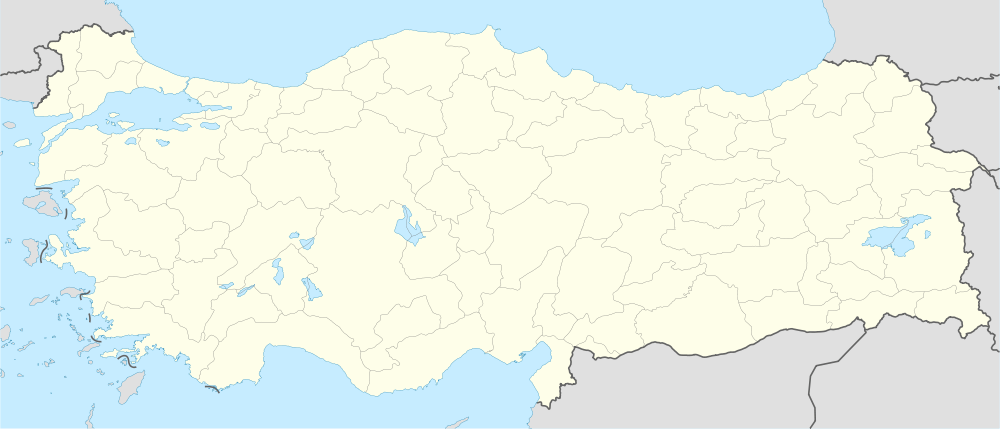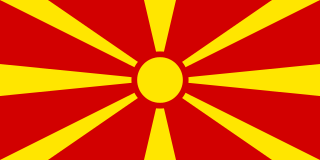Yalova
| Yalova | |
|---|---|
| Municipality | |
 Yalova | |
| Coordinates: 40°39′20″N 29°16′30″E / 40.65556°N 29.27500°ECoordinates: 40°39′20″N 29°16′30″E / 40.65556°N 29.27500°E | |
| Country | Turkey |
| Province | Yalova |
| Government | |
| • Mayor | Vefa Salman, CHP |
| Area[1] | |
| • District | 166.85 km2 (64.42 sq mi) |
| Population (2012)[2] | |
| • Urban | 102,874 |
| • District | 121,479 |
| • District density | 730/km2 (1,900/sq mi) |
| Website |
www |
Yalova is a city located in northwestern Turkey, near the eastern coast of the Sea of Marmara. Yalova has a city population of 100,863, while the population of the Yalova Province is 118,998.[3] as of 2011. Currently there is a controversy around the municipal election results in Yalova especially after the Supreme Election Board invalidated the 2014 Municipal Election results on April 24, 2014 after a few recounts that changed results.[4]
Etymology
In general, it is assumed that the name "Yalova" comes from "Yalıova"[5] "Yalı" which means "house at the coast" while "ova" means plain in Turkish.
History

Ancient Yalova
The first settlement in the region dates back to the Prehistoric Period, in around 3000 BC. The Hittites ruled the region in the 21st century BC, followed by the Phrygians in the 13th century BC. The region was conquered by the Romans in 74 BC.
In Antiquity and for most of the Middle Ages, the town was known as Pylae or Pylai (Greek: Πύλαι), which is Greek for "gates", as it was at the start of one of the main routes leading into Asia for whomever crossed the Sea of Marmara from Europe.[6]
Middle Ages
In the Byzantine period the town remained of some importance due to its geographic location, and emperors frequently used it as a disembarkation point from Constantinople. Thus Emperor Heraclius landed here in 622, at the beginning of his counter-offensive against the Persians, and Romanos IV Diogenes did the same in 1071, on his way to the Battle of Manzikert.[6] In the 9th century, the town was also the site of one of the beacons that transmitted news from the frontier with the Abbasid Caliphate, and included an imperial hostel for travellers. In the late 10th century, however, Leo of Synada described Pylae as little more than a village, where cattle, horses, pigs and other animals were gathered to be shipped to Constantinople.[6]
The town and the surrounding district were raided by the Seljuk Turks after Manzikert, but soon recovered. In 1147, Greek refugees from Phrygia were settled there. In 1199 charter of privileges to Venetian merchants, it is attested along with neighbouring Pythia Therma as a separate fiscal district (episkepsis), and was a separate province by the time of the Fourth Crusade (1204).[6] Following the fall of Constantinople to the Crusaders, Pylae formed part of the Empire of Nicaea, and served as the main port for Nicaea itself.[6] Pylae remained in Byzantine hands until ca. 1302, when Turkish attacks grew in intensity, forcing much of the population to abandon it and seek refuge in the Princes' Islands.[6]
Modern
Shortly after, Yalova was incorporated into the territory of the Ottoman Empire.
Mustafa Kemal Atatürk occasionally lived in Yalova in his final years. In one of his speeches he famously said: "Yalova is my city."
Tourist attractions

Yalova has a number of tourist attractions, such as the "Yalova Atatürk Mansion" used by Mustafa Kemal Atatürk, the founder of the modern Turkey, during his visits to the city.
There are also numerous new cultural centres, such as the Raif Dinçkök Cultural Centre and Cem Kültür House.
The city is famous for its hot springs in Termal district, which gets its name from the Greek word [[thermae]θερμαί], which means "warm".
Another attraction is the Karaca Arboretum on the way to Termal.
Climate
Yalova has a borderline mediterranean/humid subtropical climate (Köppen climate classification: Csa/Cfa), with cold winters and hot, humid summers.
| Climate data for Yalova | |||||||||||||
|---|---|---|---|---|---|---|---|---|---|---|---|---|---|
| Month | Jan | Feb | Mar | Apr | May | Jun | Jul | Aug | Sep | Oct | Nov | Dec | Year |
| Record high °C (°F) | 25.1 (77.2) |
27.2 (81) |
31.4 (88.5) |
36.5 (97.7) |
34.2 (93.6) |
42.1 (107.8) |
45.4 (113.7) |
40.0 (104) |
37.5 (99.5) |
36.6 (97.9) |
29.0 (84.2) |
27.4 (81.3) |
45.4 (113.7) |
| Average high °C (°F) | 10.3 (50.5) |
10.5 (50.9) |
12.7 (54.9) |
17.2 (63) |
21.7 (71.1) |
26.4 (79.5) |
28.8 (83.8) |
28.9 (84) |
25.4 (77.7) |
20.7 (69.3) |
15.8 (60.4) |
12.0 (53.6) |
19.2 (66.56) |
| Average low °C (°F) | 3.3 (37.9) |
3.1 (37.6) |
4.5 (40.1) |
8.0 (46.4) |
11.9 (53.4) |
15.9 (60.6) |
18.0 (64.4) |
18.3 (64.9) |
15.0 (59) |
11.8 (53.2) |
7.7 (45.9) |
5.2 (41.4) |
10.23 (50.4) |
| Record low °C (°F) | −5.9 (21.4) |
−11.0 (12.2) |
−7.4 (18.7) |
−1.6 (29.1) |
1.2 (34.2) |
8.0 (46.4) |
10.8 (51.4) |
10.6 (51.1) |
6.2 (43.2) |
1.3 (34.3) |
−3.2 (26.2) |
−5.6 (21.9) |
−11 (12.2) |
| Average precipitation mm (inches) | 86.9 (3.421) |
69.8 (2.748) |
69.5 (2.736) |
53.0 (2.087) |
33.8 (1.331) |
41.7 (1.642) |
22.4 (0.882) |
36.9 (1.453) |
52.9 (2.083) |
89.0 (3.504) |
89.2 (3.512) |
107.2 (4.22) |
752.3 (29.619) |
| Avg. rainy days | 15.6 | 13.3 | 12.3 | 11.1 | 7.6 | 6.0 | 4.2 | 4.3 | 6.3 | 10.8 | 12.6 | 14.5 | 118.6 |
| Mean monthly sunshine hours | 58.9 | 86.8 | 133.3 | 171 | 235.6 | 273 | 294.5 | 279 | 222 | 155 | 78 | 46.5 | 2,033.6 |
| Source: Devlet Meteoroloji İşleri Genel Müdürlüğü [7] | |||||||||||||
International relations
Twin towns—Sister cities
 Bonn, Germany
Bonn, Germany Ohrid, Macedonia
Ohrid, Macedonia Mahachkala, Russia
Mahachkala, Russia Suwon, South Korea
Suwon, South Korea Medgidia, Romania
Medgidia, Romania Batumi, Georgia, since 2000[9]
Batumi, Georgia, since 2000[9] Burgas, Bulgaria
Burgas, Bulgaria
Notable natives
- Muharrem İnce - Politician
- İzel (İzel Çeliköz) - Singer
- Mehmet Okur - NBA basketball player
- Şebnem Ferah - Singer
References and notes
- ↑ "Area of regions (including lakes), km²". Regional Statistics Database. Turkish Statistical Institute. 2002. Retrieved 2013-03-05.
- ↑ "Population of province/district centers and towns/villages by districts - 2012". Address Based Population Registration System (ABPRS) Database. Turkish Statistical Institute. Retrieved 2013-02-27.
- ↑
- ↑
- ↑ TDK Online - Yalı entry
- ↑ 6.0 6.1 6.2 6.3 6.4 6.5 Foss, Clive (1991). "Pylai". In Kazhdan, Alexander. The Oxford Dictionary of Byzantium. Oxford and New York: Oxford University Press. p. 1760. ISBN 978-0-19-504652-6.
- ↑ http://www.dmi.gov.tr/veridegerlendirme/il-ve-ilceler-istatistik.aspx?m=YALOVA
- ↑ Administration
- ↑ "Batumi - Twin Towns & Sister Cities". Batumi City Hall. Archived from the original on 2012-05-04. Retrieved 2013-08-10.
External links
| Wikimedia Commons has media related to Yalova. |
- Yalova photographs
- Yalova / INFO
- Visit Yalova
- Yalova Fotograf Amatörleri Dernegi YAFOD Yalova photographs
- Yalova Hotels Guide
